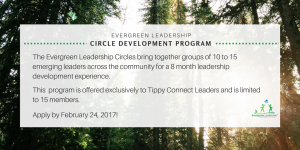My Dad had a mantra when I was growing up. It went like this: “Get an education. It is the one thing no one can take away.” That set the tone for the rest of my life, and I believe that it is fundamentally sage advice.
In addition to being something uniquely yours, expanding your knowledge, developing your skills, and broadening your network is a gift that keeps on giving. It increases your life satisfaction. It improves your job performance, which leads to other good things like plum assignments, new opportunities, and career growth.
In spite of a host of good reasons to invest in ourselves, we can lose sight of actually taking tangible actions. We defer. We hope our employer will take on the task, or we serve the immediate needs of our jobs, our families and our lives – losing sight of the actions we can take today to make tomorrow better.
And today the stakes are higher. When the best jobs 15 years from now don’t even exist today, when the amount of technical information doubles every two years, when employers are hiring, more and more – for capability rather than competency – it is our duty to own our personal learning, growth and development with focus and intention.
Capability as a Critical Employment Criteria
When I state that employers are looking for capability as a critical employment criteria, they are looking for these specific attributes:
- People that innovate. That are willing to challenge the status quo. That ask good questions and try new ways to approach their work.
- People that perform in new situations, ambiguous situations, and complex situations. That can quickly learn the lay of the land, who can discern what is most important and get cracking on it. Who don’t wait for direction or complete clarity. Who get on with it, no excuses, no whining, no “wait and see” or “lay low”, but a focus on action.
- People who reflect. Who, after taking action, pause to question what worked and what did not – so that they can continually refine their actions the next time. Who assess and know that slowing down to reflect is key to improvement and faster execution in the future.
- People who risk. Who are willing to be less than fully competent, to look foolish, to try something new knowing that it WILL be less than perfect in the beginning and that there is a chance it may fail.
- People who are not defensive. Defensiveness is a closing of oneself to new ideas, new ways of thinking and new possibility. There is no growth in defensiveness, only entrenchment. When defensive, we cannot even entertain that there may be more to consider, to learn, or to do.
You may be with an employer who does not invest in people’s skill development, or you may be self-employed. Perhaps you’re strapped for time or for resources. Or, maybe you believe that investing in yourself is going to require thousands of dollars or quitting your job to get that degree or spending time you don’t have to study or take a class.
Here is the thing: It doesn’t need to. We are presented daily with opportunities to develop ourselves. With focus and repetition, you’ll find that you will learn and learn more quickly – and that the benefits will accrue over time.
5 Things Every Professional Should Do to Develop Themselves
Here is a short list of 5 things you can do, starting today:
1. Cultivate rich & diverse networks of people
Who you spend time with is important; peer groups matter. Build relationships with people who are different than you in occupation, culture, or thinking style. Innovation comes from connecting two disparate ideas and this is a great way to expand your thinking. Make your network broad. Connect with others that are smarter, more skilled or advanced than you are at the moment. They will pull you up and broaden your perspective in ways that you can’t imagine right now.
2. Have coaches, mentors, and peer groups
Anyone who has done a sport seriously knows the value of a coach. This is someone who will help you improve your skills or performance in a focused area. When you know exactly what you want to do better, find someone who can show you, provide solid feedback to your efforts, and encourage you. Sometimes you’ll want to pay for a coach; other times people will be willing to coach you for the sheer satisfaction of seeing you improve.
Mentors are individuals who can share their experience and guide your success. The focus is less specific than a coach – it is your overall well-being, in a career, an organization or a field. These are individuals who, over a cup of coffee, will listen and guide you. Who will share insights and advice freely. And who will connect you to others.
Peer groups can be formal, like professional organizations or affinity groups, or informal. Whether a national organization in your field or a group you’ve pulled together of your own accord to grow together, they bring insights and breadth for you.
This may surprise you – but many individuals are willing to help you learn and grow. All you have to do is take a risk and ask. Then, your job is to be open to learning, accepting of feedback, and to be grateful for what they offer.
3. Create feedback loops
Practice, in and of itself, does not make perfect. In fact, repeating something poorly, over and over, ingrains imperfect performance. The key to perfect practice is feedback. So no matter what you are attempting to learn, build in a robust feedback loop. For somethings, it can be your personal reflection or observation. For others, you might create quantifiable criteria. This is where a coach, mentor or peer group can be invaluable.
The notation here is simple – practice and assess what went well and what did not. Correct and try again. Repeat, over and over again, each time stopping to get feedback and make corrections.
4. Experiment
Look at learning something new as an experiment. It takes the pressure to perform perfectly away. Adopt a “I’m just going to see what will happen” attitude. Be curious rather than judgmental, and then conduct mini experiments. Perhaps you can experiment by doing a job shadow or a two month rotation. Experiment with having a tough conversation that you’ve been avoiding, or taking a class in something outside your comfort zone. All are learning experiences if you approach them that way.
5. Be intentional / Don’t abdicate responsibility for your success to someone else
And finally, commit to developing your skills, your network, your capabilities with intention. Be specific. Set some learning goals. Carve out time. Set aside money, if needed. Risk asking others to coach or mentor you. It may be the most important thing you do!
Women leaders in the mid-west might want to invest in themselves by attending a conference on May 4-5 that I am co-hosting with Caroline Dowd-Higgens and Lindsay Boccardo called Empowering Remarkable Women Leaders: Connect. Innovate. Inspire.
Emerging leaders in the Tippecanoe County area can invest in themselves by enrolling in an 8 month leadership development experience sponsored by Tippy-Connect. Registrations are due now!
There is no time like today to begin to invest in yourself!

Remarkable women leaders, join us for a 24-hour multigenerational retreat experience on May 4-5, 2017 at Wooded Glen Retreat Center.
During our time together, you will work, play, and honor your mind, body, and spirit with a transformative program. Experience influential relationship building, mastermind, small group, and full leadership sessions, delicious food and restful
accommodations.
Learn more at http://remarkablewomenleaders.com/.

Learn more by clicking here.





3 Responses
Very good advise! Thanks
Short, sweet and to the point. Appreciate the insight on capabilities. Thanks, Kris!
Having done my job for 30 years one of, if not my biggest fear is becoming complacent and satisfied with my work “processes”. These points are relevant and I will implement in my practice.